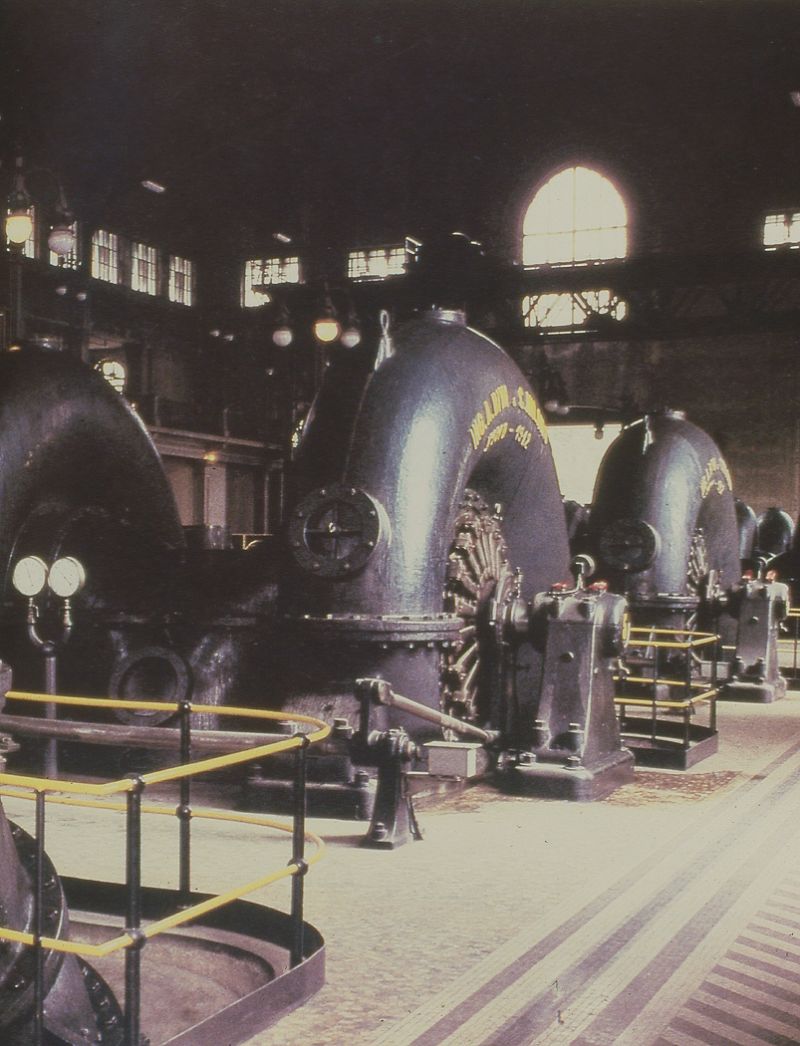| Pages in topic: < [1 2 3 4] > | Looking for a career change and feeling "passionate" about languages and translation? Thread poster: Philippe Etienne
|
|---|
Rachel Waddington wrote:
Is anyone passionate about something they've been doing for 20+ years?
I think the idea of finding a job you love is overrated and causes false expectations. It's not the reality for most people. If you are reasonably happy in your job most of the time you are doing pretty well.
I am passionate after 40 years, you are not. Ok, but please do not judge/doubt other people passion.
[Edited at 2022-11-07 14:48 GMT]
| | | |
Angie Garbarino wrote:
I am passionate after 40 years, you are not. Ok, but please do not judge/doubt other people passion.
[Edited at 2022-11-07 14:48 GMT]
I didn't mean to judge or doubt you. I just don't believe it's necessary to feel passion in order to do a good job.
Though when I think about it, I have been known to drag my partner round hydroelectric power stations on holiday so maybe some people would call that being passionate about my job.
| | | | Daryo
United Kingdom
Local time: 13:59
Serbian to English
+ ...
| Yes No But Only ... | Nov 7, 2022 |
Sadek_A wrote: Kaspars Melkis wrote:
There was a study which concluded that most legal writing is hard to understand by lay persons not because of specific terminology but because it is poorly written without real necessity. The same applies to scientific and medical texts. I'd say "overly," not "poorly". Kaspars Melkis wrote:
Specialists in their fields are not always the best writers, therefore translators can often produce output that is easier to read and understand than original source texts. Finally, the honest judgment surfaced! Similarly, language-degree-holding translators can often produce output that is easier to read and understand than specialist-field degree-holding translators. I know you will retract now!
"translators can often produce output that is easier to read and understand than original source texts"
Yes, can only agree with that, but ONLY as long as the translator is capable of understanding the text - as a whole not just each word on its own.
I've seen too many texts in various specialised fields "improved" beyond usability by people without any understanding of the text. In my rule-book, a nice-sounding-easy-to-read translation that gets key parts wrong is simply not fit for purpose - ten times worst than any accurate translation, no matter the style of writing.
And somehow, I think that most end-users of translated texts would tend to agree with me.
as for
"There was a study which concluded that most legal writing is hard to understand by lay persons not because of specific terminology but because it is poorly written without real necessity. The same applies to scientific and medical texts."
I would be very interested to have a close look at this "study". Done by who exactly, when and where, using which methodology, on which samples of texts and readers ...?
Would that one be of the kind of "studies" aimed at feeding the philosophy of "we don't need experts" / "anyone can do it"? Yeah sure, that philosophy surely works well - see: Liz Truss.
There are no two ways about it: if a "lay" person wants to understand some specialised subject matter, the said "lay" person has to quit on being a "lay" person and make some efforts ("some" in some cases being in fact quite a lot) and learn at least basic concepts of law / economics / physics / medicine / maths / ....
| | | | Kaspars Melkis 
United Kingdom
Local time: 13:59
English to Latvian
+ ...
| specialization is the key | Nov 7, 2022 |
Mr. Satan wrote:
This begs a question: if a translation degree is so virtually useless, then why would anyone major in it? Even when people are determined to be language professionals before entering higher education, they are better off getting a degree in, e.g., engineering or computer science. They can market themselves as translators specializing in a particular niche. And if they failed to have a career in this field, they could just fall back on robotics or tech industry. Thus, disincentivizing any interests in translation studies. While you might argue that translation degree holders can get a head start, in practice this is hardly a leverage for them. Besides, ISO-certified agencies are bad news anyway.
Just a thought.
Do you think that editing of machine translation output requires translation degree? I don't but many experts on this site have claimed that all translators need to learn MTPE or lose their jobs.
I have a different opinion. While MTPE will be sufficient for many purposes, translators who specialize, will still be needed and be able to earn living in foreseeable future.
It doesn't matter whether you first received degree in translation and then learned more about your specialization or first got a degree in your specialization and then received training in translation. In practice both roads seem to work well.
| | |
|
|
|
Mr. Satan (X)
English to Indonesian
Kaspars Melkis wrote:
Do you think that editing of machine translation output requires translation degree? I don't but many experts on this site have claimed that all translators need to learn MTPE or lose their jobs.
I don't care about MTPE. My previous post was challenging the notion of whether a translation degree is a valid barrier to entry in this profession.
I have a different opinion. While MTPE will be sufficient for many purposes, translators who specialize, will still be needed and be able to earn living in foreseeable future.
And I agree with this sentiment. Hence why I don't subscribe to the doomsday narrative prophesied by some on this website.
It doesn't matter whether you first received degree in translation and then learned more about your specialization or first got a degree in your specialization and then received training in translation. In practice both roads seem to work well.
Which brings us back to my original question: how much value would one get from obtaining a translation degree? Please bear in mind, that I'm asking this from a US perspective. Student debt is a serious issue in there, so the ROI better be good.
| | | | Sadek_A 
Local time: 16:59
English to Arabic
+ ...
Excerpts from translation sites:
A.
"A translation degree or certification illustrates that a translator has the knowledge necessary to do translation work and do it well. This is especially helpful for those who are new in their career without much work experience under their belt. While some translators learn the necessary skills to do this job on their own through a lot of practice, not having credentials to account for what they know can create a roadblock for them. Pursui... See more Excerpts from translation sites:
A.
"A translation degree or certification illustrates that a translator has the knowledge necessary to do translation work and do it well. This is especially helpful for those who are new in their career without much work experience under their belt. While some translators learn the necessary skills to do this job on their own through a lot of practice, not having credentials to account for what they know can create a roadblock for them. Pursuing a translation degree or certification plays an important role in learning how to work as a translator and how to create a linguistically and culturally accurate message."
"Some translators, after obtaining their degree in translation, go on to earn a degree in finance, the arts, history, or another subject relevant to their expertise"
Huh! After, not before; supplementary, not in lieu of; and, by some, not by all!
B.
"1) Many translation agencies that emerge on the market have no idea about actual translation processes and apply methods that devalue a translator’s labor. They take an easy way out dumping the prices both for the clients to resist high competition between the agencies and for translators to increase marginal income. This leads to a situation where professional translators simply refuse to work for peanuts. That means when you hire a second-rate translation agency, you cannot be sure that the translation is done by professional translators.
2) There are many SELF-PROCLAIMED translators who are ready to work for peanuts, but cannot offer anything but pitiful translations that often represent poorly edited machine translation."
I wonder what "self-proclaimed" here means?! ▲ Collapse
| | | | Kaspars Melkis 
United Kingdom
Local time: 13:59
English to Latvian
+ ...
Daryo wrote:
Yes, can only agree with that, but ONLY as long as the translator is capable of understanding the text - as a whole not just each word on its own.
Is there a case when the translator is not required to understand the whole text? To me this seems such a basic requirement, not worth to emphasize. My translation training was that first you need to read the whole text and clarify unclear things before you start translating.
And somehow, I think that most end-users of translated texts would tend to agree with me.
Indeed, user testing could be used more often in translation practice to assess the quality.
There are no two ways about it: if a "lay" person wants to understand some specialised subject matter, the said "lay" person has to quit on being a "lay" person and make some efforts ("some" in some cases being in fact quite a lot) and learn at least basic concepts of law / economics / physics / medicine / maths / ....
A lay person is not an uneducated person in this case but someone who has no professional knowledge in the given field. As far as medicine is concerned, it is a general practice and even a legal requirement in some cases to prepare texts for lay person. Patient leaflet for every medicine approved in the EU contains the same information as the summary of product characteristics which is meant for healthcare professionals. It is slightly abbreviated and written in a language that non-professionals can easily understand. Also the EU law requires that the lay summaries of the clinical study results are published. Those summaries are read by journalists, investors, patients etc.
| | | | Lingua 5B 
Bosnia and Herzegovina
Local time: 14:59
Member (2009)
English to Croatian
+ ...
Kaspars Melkis wrote: Daryo wrote:
Yes, can only agree with that, but ONLY as long as the translator is capable of understanding the text - as a whole not just each word on its own.
Is there a case when the translator is not required to understand the whole text? To me this seems such a basic requirement, not worth to emphasize. My translation training was that first you need to read the whole text and clarify unclear things before you start translating. And somehow, I think that most end-users of translated texts would tend to agree with me. Indeed, user testing could be used more often in translation practice to assess the quality. There are no two ways about it: if a "lay" person wants to understand some specialised subject matter, the said "lay" person has to quit on being a "lay" person and make some efforts ("some" in some cases being in fact quite a lot) and learn at least basic concepts of law / economics / physics / medicine / maths / ....
A lay person is not an uneducated person in this case but someone who has no professional knowledge in the given field. As far as medicine is concerned, it is a general practice and even a legal requirement in some cases to prepare texts for lay person. Patient leaflet for every medicine approved in the EU contains the same information as the summary of product characteristics which is meant for healthcare professionals. It is slightly abbreviated and written in a language that non-professionals can easily understand. Also the EU law requires that the lay summaries of the clinical study results are published. Those summaries are read by journalists, investors, patients etc.
Since when are medical texts addressed at patients only? I translate a ton of medical material that is shared between doctors only.
On topic, we first need to be on the same page re. the definition of “passionate”. Is it someone too energetic, too happy, or very competent? For instance, I once had an enthusiastic dentist, and then I found a good one.
| | |
|
|
|
Tom in London
United Kingdom
Local time: 13:59
Member (2008)
Italian to English
| Like this, maybe? | Nov 10, 2022 |
Rachel Waddington wrote:
---- I have been known to drag my partner round hydroelectric power stations on holiday .....
Centrale Esterle 1906-14- built to power the Milan tramways. I'm passionate about architecture and everything architecture is connected to. Including translations of architecture-related documents.
My dream translation would be translating a comprehensive architectural and technical report about a building like this.

[Edited at 2022-11-10 10:50 GMT]
| | | | | Similar to that ... | Nov 10, 2022 |
Tom in London wrote: Rachel Waddington wrote:
---- I have been known to drag my partner round hydroelectric power stations on holiday ..... Centrale Esterle 1906-14- built to power the Milan tramways. I'm passionate about architecture and everything architecture is connected to. Including translations of architecture-related documents. My dream translation would be translating a comprehensive architectural and technical report about a building like this.  [Edited at 2022-11-10 10:50 GMT]
... but in southern Germany.
My dream translation would be about the turbines.
| | | | Tom in London
United Kingdom
Local time: 13:59
Member (2008)
Italian to English
Rachel Waddington wrote:
My dream translation would be about the turbines.
Mine would, of course, include not only the turbines but all the land engineering, creating watercourses, etc. required to make the whole thing work...the architecture and the engineering are all one thing. These are the 6 water pipes for the turbines.. Architecture isn't about style. Many people make that mistake. The architect who designed this building also had to think about the engineering.
But to return to the topic: even if I'm translating a document about something for which I feel no enthusiasm, I can always get enthusiastic about the translating process itself even if - as happened quite recently - it's a schedule of the dimensions and typologies of manhole covers.

[Edited at 2022-11-10 14:25 GMT]
| | | | Dan Lucas 
United Kingdom
Local time: 13:59
Member (2014)
Japanese to English
Tom in London wrote:
But to return to the topic: even if I'm translating a document about something for which I feel no enthusiasm, I can always get enthusiastic about the translating process itself even if - as happened quite recently - it's a schedule of the dimensions and typologies of manhole covers.
Tom, it may not be your primary argument here, but I believe that you are stating explicitly something that most intellectually curious people understand implicitly. That is, everything becomes interesting if you look at it closely enough.
Dan
| | |
|
|
|
Kaspars Melkis 
United Kingdom
Local time: 13:59
English to Latvian
+ ...
| Michele Fauble 
United States
Local time: 05:59
Member (2006)
Norwegian to English
+ ...
| Kay Denney 
France
Local time: 14:59
French to English
Rachel Waddington wrote:
---- I have been known to drag my partner round hydroelectric power stations on holiday .....
Ah I'm not the only one! I recently translated the text for a plaque to commemorate the deaths of some workers at a building site for a water tower, and I asked the client to let me know when it was up so I could see my translation engraved. I'm pretty sure this is the first time my prose has been engraved, so I'm all excited about it. Since I don't drive, my partner will have to take me. He has also accompanied me to my clients' concerts, but my daughter relieves him for their art exhibitions.
| | | | | Pages in topic: < [1 2 3 4] > | To report site rules violations or get help, contact a site moderator: You can also contact site staff by submitting a support request » Looking for a career change and feeling "passionate" about languages and translation? | TM-Town | Manage your TMs and Terms ... and boost your translation business
Are you ready for something fresh in the industry? TM-Town is a unique new site for you -- the freelance translator -- to store, manage and share translation memories (TMs) and glossaries...and potentially meet new clients on the basis of your prior work.
More info » |
| | Anycount & Translation Office 3000 | Translation Office 3000
Translation Office 3000 is an advanced accounting tool for freelance translators and small agencies. TO3000 easily and seamlessly integrates with the business life of professional freelance translators.
More info » |
|
| | | | X Sign in to your ProZ.com account... | | | | | |


























